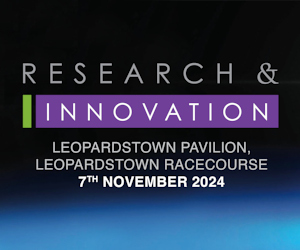Professor Michael Morris new director of AMBER research center

AMBER, the Science Foundation Ireland funded materials science centre based at Trinity College Dublin, has today announced the appointment of Professor Michael Morris as Director of the organisation. Professor Morris, a native of Liverpool, UK, has been in position since October.
A leading academic and industry scientist for thirty years, Professor Morris is also founder of Glantreo, an SME spin out company from University College Cork, and maintains links with the company in developing novel stationary phase materials for chromatography applications.
Welcoming the appointment Professor Mark Ferguson, Director General of Science Foundation Ireland and Chief Scientific Adviser to the Government of Ireland, said:
“Professor Morris brings a depth of knowledge at a senior level in both academia and industry which will serve him well in his leadership of AMBER and I wish him well in the role. The research carried out at AMBER is the type of excellent and impactful science which Science Foundation Ireland aims to support, delivering solutions that can benefit both Irish society and the economy.”
Commenting on his appointment, Professor Mick Morris, said :
“I am delighted to be taking up the position of Director of AMBER, and look forward to working closely with the talented researchers within the Centre and driving new partnerships with industry. I am delighted to be working with colleagues here to support the best research in materials science. Ireland is now ranked 3rd in materials science in the world and AMBER has played a significant role in this positioning.”
AMBER has a strong emphasis on linking industry to the world class research being carried out in AMBER and by the associated researchers, across the disciplines of Physics, Chemistry, Bioengineering and Medicine, with an international network of collaborators and companies.
The aim of the centre is to translate our breakthrough science into technologies and products that directly impact everyone’s quality of life. Examples where we have had significant industrial and commercial impact include, the development of the next generation computer chips as well as new medical implants and pharmaceuticals that will improve patient care.







